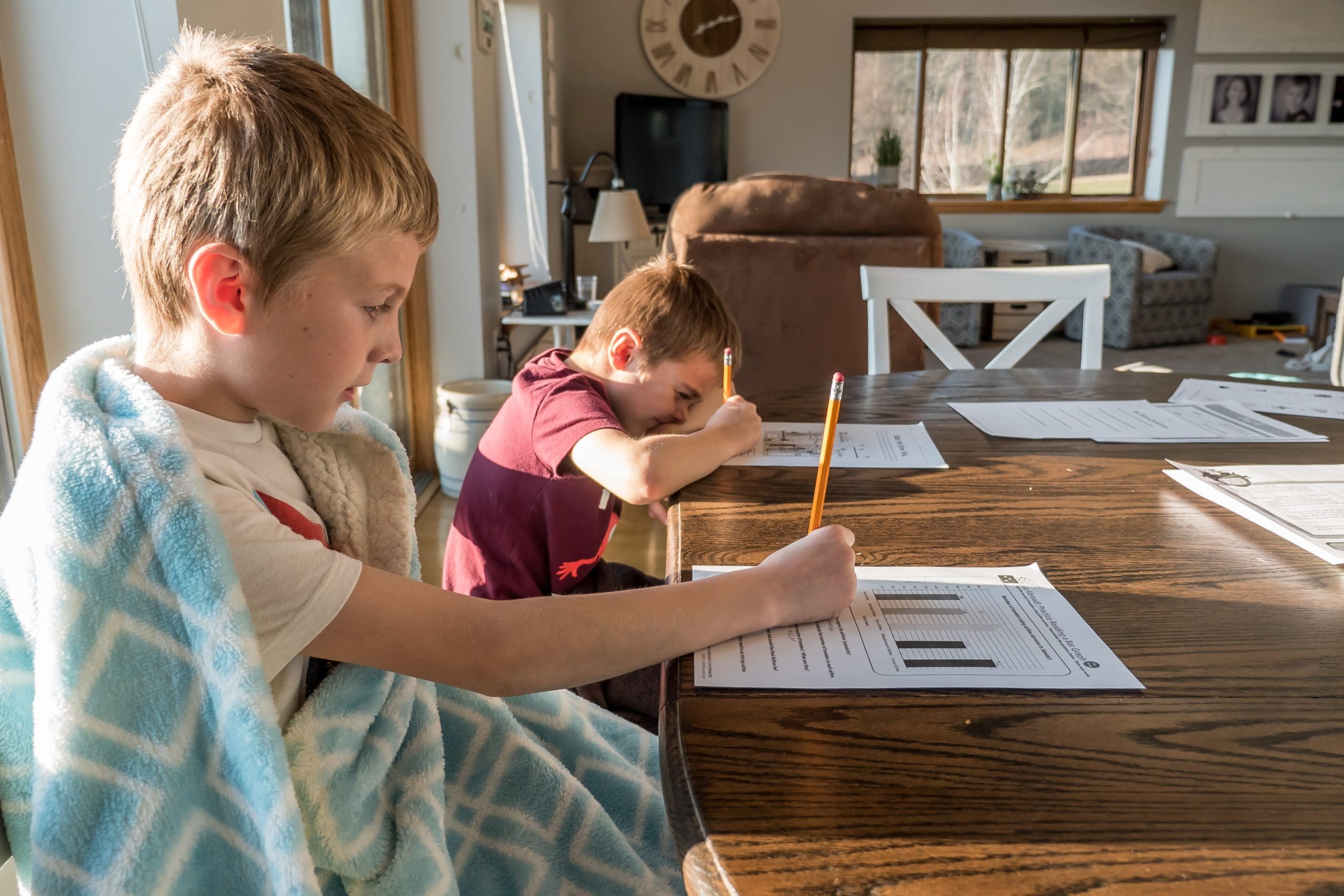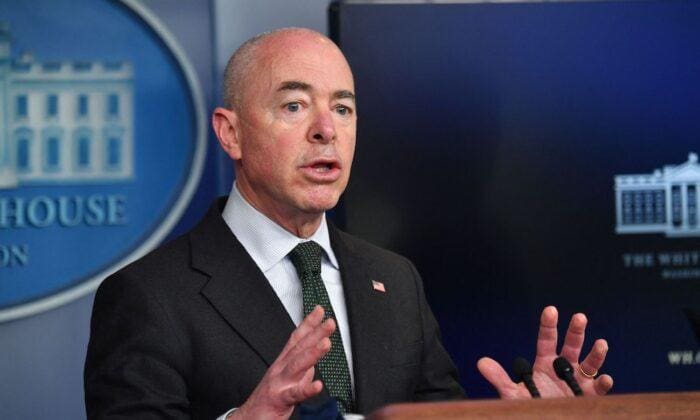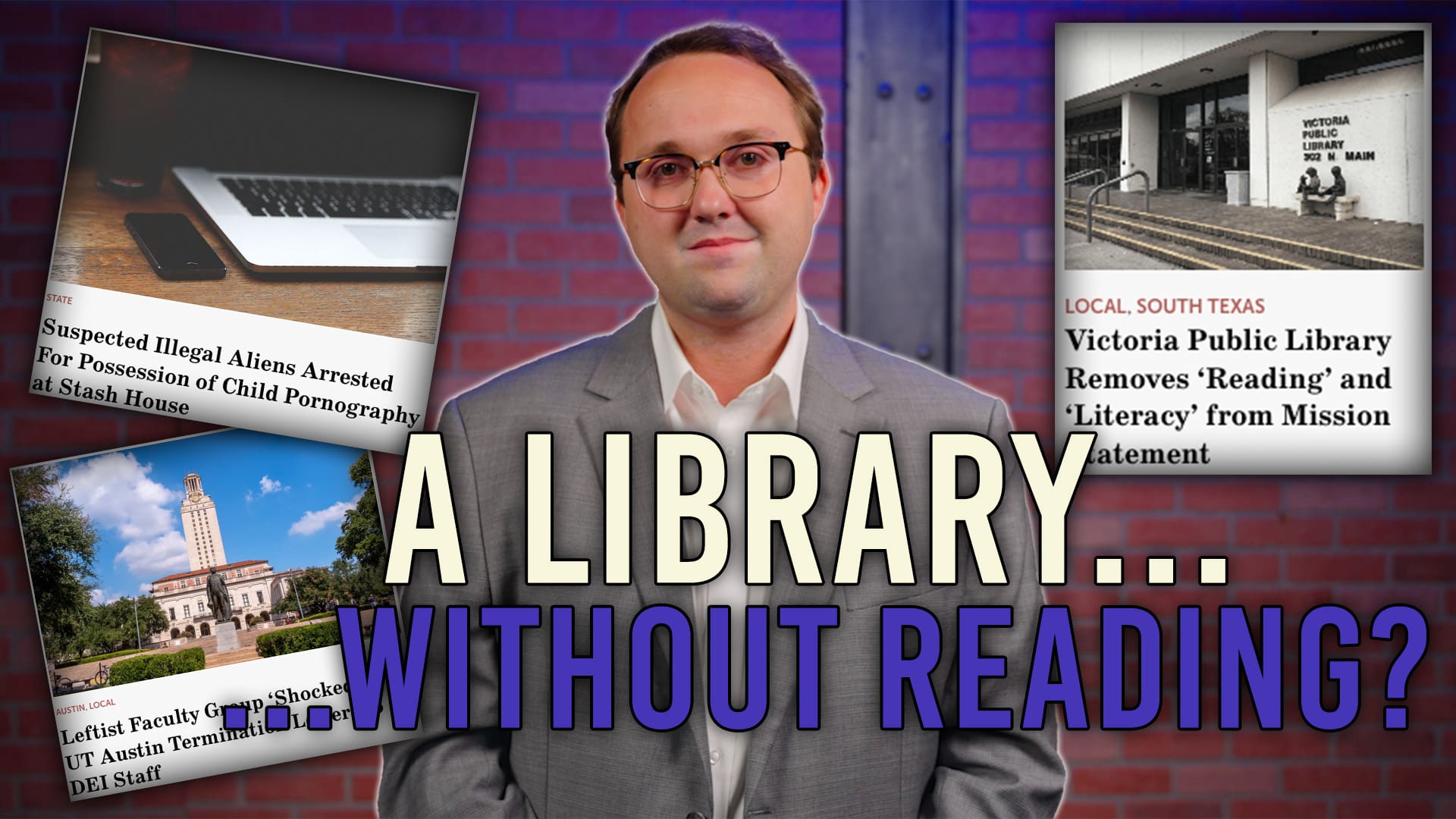During this legislative session, legislators heard from citizens and delivered two key homeschooling reforms: allowing equal access to the school resources that families pay taxes for, and protections for an alternative to public school. However, the Legislature failed to codify certain protections of family rights.
“Not everyone had the same experience we had this session. I recognize that,” Jeremy Newman of Texas Home School Coalition told Texas Scorecard in an interview. ”I want to make sure people know this other side of the story. … At least on these issues—CPS family issues and the homeschool issue—[the] Legislature did a lot.”
Texas Scorecard will review reforms of Child Protective Services in a future article.
Two major homeschooling reforms the Texas Legislature passed during the regular session this year were the University Interscholastic League (UIL) Equal Access Bill, House Bill 547, and the Learning Pod Protection Act, Senate Bill 1955.
But one critical action was left undone: the protections for families were not codified into law.
Special Session
While Newman says this session benefited homeschoolers, one thing left undone was the Family Unity Act, which he’d like to see addressed in one of the special sessions Gov. Greg Abbott is expected to call this year.
“The Family Unity Act is designed to take the high points of case law as it relates to the right of families to raise their child, and it embeds that in the Texas Family Code directly,” he explained.
Newman says the last 100 years of case law from the Texas Supreme Court and the U.S. Supreme Court contain “certain constitutional rights and process” that judges and lawyers have to follow before “they can interfere in the parent-child relationship.”
“The problem we have in Texas is a lot of judges, a lot of attorneys, don’t know that.”
“At the district court level, a bunch of these cases go the wrong way,” he explained. “If the family can afford to get to the appellate court level, they can usually get it flipped and vindicate their rights. But of course, that costs tens of thousands of dollars.”
“What we want to do is take those rules from the case law and embed them into the family code directly, so that it’s clear to everybody what those rules are.”
Newman said the Family Law Foundation opposed THSC on this over what he thinks was a “philosophical difference.” “The end result is we got that voted out of the Senate committee, and we could not get a vote out of the House Committee because of their opposition.”
Learning Pods
The Legislature did protect an alternative form of education from local officials called learning pods, which a website defines as “simply a group of like-minded people who have chosen to create a closed community for their students to learn and grow together.”
“The definition of a learning pod is pretty broad and would include even a senior homeschool co-op,” Newman said.
“I knew we had talked to families in the past who have had problems with this issue from local governments,” Newman continued. Thus, the Legislature passed the Learning Pod Protection Act.
“[It] says that local governments are not allowed to place restrictions on learning pods that they might have placed on other senior school facilities, like a public school—things like childcare licensing requirements and fire code requirements,” he explained. “It’s not a major widespread problem, but with the new increase of learning pods, I think the bill will help protect against that going forward.”
UIL Equal Access
Newman said the UIL Equal Access Bill recognizes that homeschooling taxpayers have the right to access public school extracurricular activities they pay for.
“The types of programs [UIL] includes would be almost anything you can think of as a traditional form of extracurricular activity,” he said, adding this would include sports, music, chess, and wrestling.
Newman explained how this will help both rural and urban homeschooling families.
“If you live in a rural area in Texas, the chances that you have access to any type of extracurricular activities are far lower than someone in a metropolitan area,” Newman said. “I talk to families regularly who have to drive two, three, or four hours one way, every week, to get to the nearest possible opportunity even though they’re paying in their taxes for the opportunities right down the street at the local public school.”
Families in urban areas face a different obstacle.
“If you live in a metropolitan area, you might have private options, but they’re really expensive. And you’re having to pay twice because you pay for the public school activities in your taxes, and then you pay for the private school activities for your own student,” Newman said. “A lot of families can’t afford that.”
He thinks the Chinese coronavirus elevated the issue. “You had a bunch of new families who had left the public school district. They were used to having access to UIL activities, and they didn’t have that anymore,” Newman said. “Our point has been: If you can’t opt out of your taxes, then you should be able to reap the benefits, at least.”
He said the grassroots were “extremely active” in getting UIL equal access passed.
“I heard from a couple of senators opposite who told us [the day THSC asked people to call in favor of the bill] they got so many phone calls in favor of [it], several offices had to unplug their phones because they literally couldn’t answer the phones fast enough,” he said. “We had a lot of legislators on the House side who told us the same thing.”
Legislators Newman praised were State Reps. James Frank (R–Wichita Falls), and State Sens. Bryan Hughes (R–Mineola) and Angela Paxton (R–McKinney). “They really did a lot this session.”
“This is the first session this has really happened to us, but it was the leadership of the Texas House and the Texas Senate that got that bill across the finish line,” he said. “We had never really had this experience in the past.”
But there is disagreement about UIL equal access.
“I saw one person who recently phrased it as clearly as I’ve ever seen it phrased,” Newman said. “They said, ‘If we pass this this legislative session, we’re going to have to be back every future legislative session, protecting homeschooling against attempts at regulation increase.”
“I think my response was, ‘We already have to do that,’” he continued. “We have to be there every legislative session to protect against those regulation increases anyway, and we’ve had to do that for the last 30 years. And the only reason that we’re free in Texas is because we’ve done that.”
He also points to the 37 other states that passed UIL equal access in the past 50 years. “If you go look at those states, not a single one of them has ever increased regulation on homeschooling as a result of allowing equal access. It has never happened,” he said.
Newman also compared this debate with the one over the Texas Supreme Court’s decision in the 1994 case of Texas Education Agency vs. Gary W. Leeper, which recognized homeschooling as legal in the state.
“A lot of people don’t remember that there was the exact same controversy inside the homeschool community at that time, where there was actually a group of homeschoolers who came out, and they filed a motion in the Leeper case to get the suit dismissed,” Newman said.
“They said, ‘If you do this, it’s going to encourage the government to come back and enact regulation on homeschooling.’ Had they succeeded in that effort, homeschooling in Texas as we know it today wouldn’t even exist.”
Summary
While there was frustration regarding other issues, Newman wants citizens to know this session was largely positive for homeschoolers due to getting protection for learning pods and passing UIL equal access, even though the Family Unity Act didn’t pass.
Gov. Abbott is expected to call multiple special sessions of the Legislature. Citizens wanting to see the Family Unity Act added to legislators’ to-do list may contact Abbott, their state senator, and their state representative.
This article has been updated since publication.





